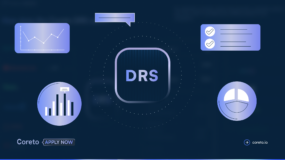
Cryptocurrencies are digital currencies that are impossible to counterfeit or double spend. They have the distinct feature of not being issued by any central authority, creating a barrier between government interference and manipulation. Cryptocurrencies created a new form of trading and investment which has become very common among almost every individual.
According to CNBC, 1 in 10 people currently invest in cryptocurrencies.
Popularity of crypto investments
Crypto investments became popular when people began to see the rewards that were generated over a short period of time by early adopters of cryptocurrencies like Bitcoin and Ethereum, which are also referred to as “Initial coin offerings” (ICO’s).
There is currently a sea of different forms of blockchain investment products available. From decentralized finance to non-fungible tokens. In fact, CoinMarketCap has nearly 7,000 cryptocurrencies listed on its platform.
Although these currencies provide broader investment options, they make it harder for investors to know which cryptocurrency is reliable enough. Unfortunately, digital currencies are volatile, and the market is extremely fluid, and this causes crypto investors to frequently experience losses.
Retail investors face difficulties not just because of the volatility of cryptocurrency, but also because of a lack of suitable learning, and understanding, of how to approach the market. For one thing, these investors seem to be more attracted to the speculative aspect of a single currency than to the diversification benefits of multiple currencies. They are also more likely to use non-fundamental information when trading currencies.
The majority of individual investors enter the market with the expectation of making quick and easy money. They often purchase currencies without first learning about them. Their failure to conduct thorough studies causes them to make ill-informed decisions. But, these individual investors don’t make the right decisions because of how challenging it is for them to get suitable information.
Some of the reasons why it is difficult for investors to get enough information include.
Lack of reliable sources
Despite the abundance of crypto education on videos and articles, most of the information passed across are often hearsay. This makes it difficult for new investors to get credible insight on the right choices to make. The majority of these sources do not go into detail about how the bear and bull markets work.
These resources do not teach about losses. Instead, they focus solely on accomplishments and revenues, leading retail investors to enter the market with exaggerated expectations, resulting in massive losses.
A sea of cryptocurrencies
There are several cryptocurrencies available on the market now, making it difficult to pick what to invest in at a particular time. Even seasoned crypto investors make the mistake of purchasing the right currency at the wrong time and the wrong currency at the right time.
Digital cryptocurrencies carry heavy risks that people should be aware of before investing. For example, anyone can make an NFT out of absolutely anything and create a buzz around it that could result in a pump and dump situation. This means there are lots of pretty risky tokens out there, and it requires a keen eye to make out what’s worth collecting or investing in.
Influence of social media
Social media has a major influence on our daily lives, both consciously and subconsciously. We can say the same about its effect on the actions of investors. Unfortunately, social media influencers are often compensated to urge regular investors to buy cryptocurrencies that may not be profitable.
Retail investors are unsophisticated “noise traders” who tend to suffer from behavioral biases which are influenced by things like social media hype and investor’s opinions to coordinate portfolio strategies. A good example of a spike in social media mentions was Elon Musk’s appearance on NBC’s on Saturday, May 8, which caused an influx of crypto investments. Without adequate information, they would invest in dangerous assets.
Absence of Mentorship
Finding a mentor who is well-versed in digital currencies and has a good understanding of them, can be challenging because it is often difficult to tell the difference between someone who is truly experienced and someone who claims to be. As a result, individuals enter with only a rudimentary understanding of the market and make poor decisions or mistakes.
Security of trading platforms
As the number of cryptocurrencies available grows, so does the number of platforms for
- trading
- investing, and
- exchanging them.
Because most cryptocurrencies are unregulated and may lack security, it can be difficult for retail investors to determine which platform is secure and safe to use. There has been a growth in the number of digital crypto platforms in the last few years, some of which are safe and secure, and others that turn out to be fraudulent.
What is the percentage rate of retail investors with suitable crypto investment knowledge?
According to survey data collected from 750 investors between February 5 and February 12, only
- 16.9% of investors who have purchased cryptocurrency have an in-depth understanding of it, while
- 33.5% have no knowledge of it or would classify their level of understanding as “basic.”
The survey results also point out that investors were
- motivated by fear of missing out on potential benefits,
- more than a third of survey respondents
researched digital currencies for just less than a month before buying, and - 1 in 4 cryptocurrency holders said they were entering the space with the expectation of earning
short-term financial gains.
Over to you – more on crypto investments
A CNBC/Momentive Invest in You study indicated that people are investing in cryptocurrencies because of how simple it is to exchange digital assets.
But, experts advise those interested in investing in cryptocurrencies to first do enough research to ensure that they truly grasp what they’re purchasing.
In one of his statements, Ben Weiss, co-founder and CEO of CoinFlip, one of the largest bitcoin ATM companies in the U.S., said, “Unlike banks and stock exchanges, there are essentially no fail-safes to safeguard you if you make a mistake.
“Cryptocurrencies enable you to be your own bank, which includes the responsibility of keeping your investments secure.” That means that, also to know the currency you want to buy, you should also be sure of the kind of crypto wallet you want to use and how you’ll keep your passwords and other sensitive information safe.




